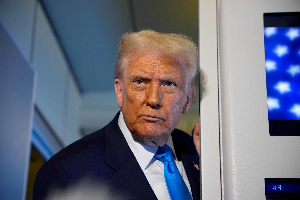Not long ago, a leader urged his people to pray to overcome challenges in their state. It didn’t look to me that he had played his part before seeking God’s help.
His reasoning reminds me of Daystar Christian Centre’s founder Pastor Sam Adeyemi who once said if prayers could build infrastructure prayer warriors would have achieved that with dispatch.
Imagine if prayers can end a situation where one of three Nigerians lives in poverty, which represents thirty-two per cent of the population. Imagine if prayers can stop thirty-seven per cent of children from suffering malnutrition.
Imagine if prayer can make a thing of the past, half of the Nigerian population who use unsafe or unimproved sanitation. What if prayers can take Nigeria away from being 43rd on the sustainable development goal index? What about praying away the fact that poverty is concentrating in fast-growing countries like Nigeria and by 2050, more than 40 per cent of Nigeria will still be under poverty’s jackboot? If only we can use prayers to get over our slot as the country with the second-highest number of deaths of children under the age of five? Alas, prayers cannot do all these!
According to the United Nations Children’s Fund (UNICEF), no fewer than 250, 000 children in Nigeria die on their first day of life.
The figure is the second-highest in the world, according to the 2017 multi indicator cluster survey.
A child born in Nigeria today, no thanks to this situation, is likely to live to the year 2074 while a child born in Denmark is likely to live until the 22nd Century! The quality of life is a different kettle of fish.
Most of these children regrettably die from preventable causes such as premature births, complications during delivery, infections like sepsis, malaria and pneumonia.
Prayers cannot stop this, only policies and programmes can.
That leader’s quest to use prayer to achieve what he should use the financial resources at his disposal to accomplish brings to mind two videos and some pictures I saw recently: The first video shows ‘unending’ lines of almajiri waiting for manna from heaven and the other shows a great man, Senator Elisha Abbo, sharing milk, malt and Fanta as a way of empowering the poor.
The pictures are of a council boss in Enugu dishing out wheelbarrows to empower the needy and to give the exercise an innovative edge: the wheelbarrows were given out on hire purchase. Such ingenuity. Soon poverty will be history in the area. All hail Madam Chairman!
The second video increases my respect for the senator. It reinforces my belief that his blood is saturated with milk of human kindness and his compassion is at its peak.
In case you have forgotten, Abbo is the one in a CCTV footage beating a woman in the presence of an armed mobile police officer who accompanied him and three other women into the shop. His philanthropy has mounted since then.
Seeing Senator Abbo’s magnanimity and the unending lines of almajiri remind me that the rankadede culture is not limited to the almajiri alone. It has become a national culture.
Politicians also beg; they beg for votes — do not mind the fact that they also steal votes. So beggars are not just people who seek alms on the streets. We are all beggars one way or the other.
On the micro-level, family members beg one another for money. Friends do the same. Colleagues beg colleagues for assistance, financial and otherwise. Church members beg pastors and vice versa for cash.
To complete the world-class works of the likes of Senator Abbo and the council chairman, there are a number of things the government must do to bring 100 million people out of poverty. Prayer cannot do it. Faith without works, the Bible warns us, amounts to nothing.
Nigeria needs more investment to grow its economy at a higher rate to be able to lift 100 million people out of poverty. Prayer cannot do it. Nigeria is only growing at about two per cent and if our country continues this way, there will be more people in poverty.
We need investments, and badly too. The investment we need is almost double what we have now. Nigeria must connect with people who want to invest in it. Agriculture, manufacturing and infrastructure are areas where we need investment. We should remain open for business until we have reduced poverty to the barest minimum.
We must have at the back of our mind that the global market for foreign direct investment is highly competitive and, to tap into it, we must position ourselves strategically. We must change the perceptions that we are all about oil. We must tell people that Nigeria is also about tech, agriculture, services and manufacturing.
Nigeria must take advantage of the fact that we are critically important as Africa’s largest economy. We must use our longstanding relationships with countries, such as the UK, the U.S. and others, to pull in the needed help. We must correct the notion that our economy is difficult to operate in.
To make investors have confidence in us, we must respect agreements. Contracts must be sacrosanct, a situation where change of governments lead to policy somersault must be ended. The PI & D controversy, which is yet to die down, is a good example of how one government’s mistake can affect the other.
We must also improve on our ease of doing business credentials. I agree some gains have been made, but they are not enough.
So, let us quit trying to pray poverty away. We must work towards ending it. That remains the only way out! Prayers can only help to make our work better. Praying without doing the required work is bloody waste of time.
Opinions of Friday, 24 January 2020
Columnist: Korede Yishau,
We can’t pray poverty away
Business














